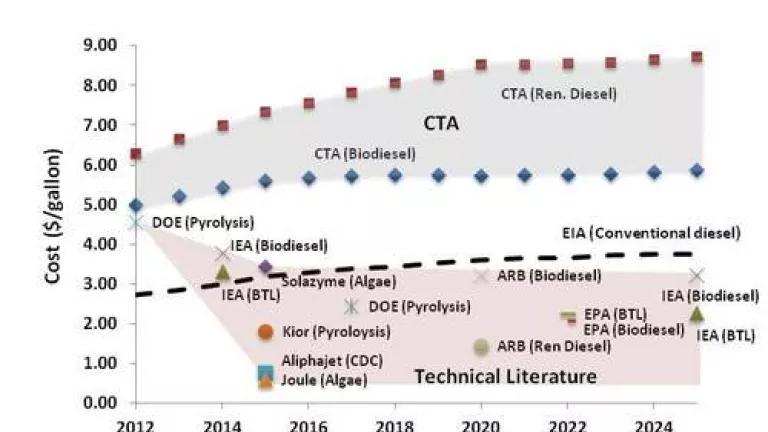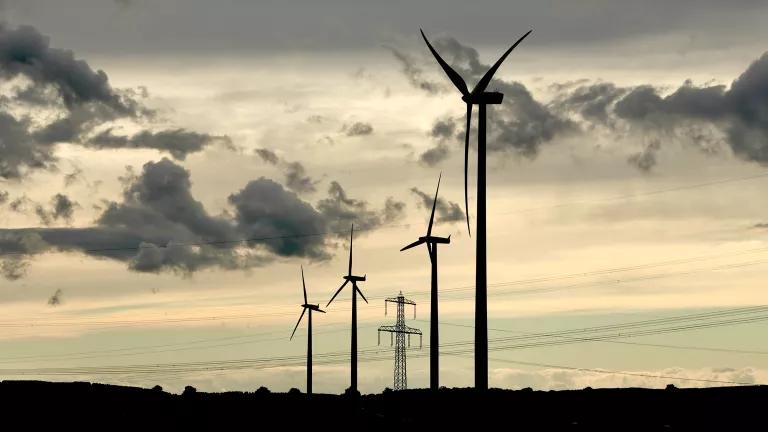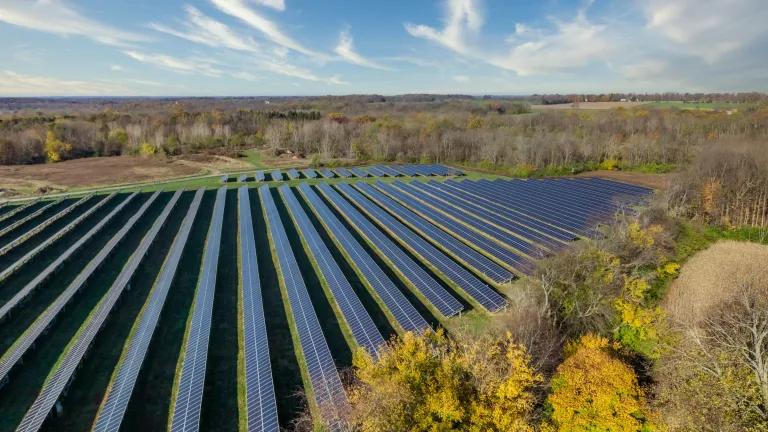
California’s Low Carbon Fuel Standard (LCFS), which requires oil companies to supply the market with cleaner, alternative fuels, had a big win on Monday when the Ninth Circuit Court of Appeals blocked a trial court’s injunction. The standard will now move forward as the case is still being heard, helping transition California to cleaner, alternative fuels that reduce our oil dependency and lower our carbon pollution.
Unfortunately, opponents are on the attack again. The California Trucking Association (CTA) released a report today claiming that increased supplies of renewable fuels will increase prices. But a review of the CTA analysis shows their cost claims just don’t hold up.
The study’s authors - Stonebridge Associates – did not use any of the cost estimates readily available from the multitude of peer-reviewed studies. They did not rely on any published numbers from renewable fuel companies, themselves, or those from the U.S. Department of Energy (DOE), the International Energy Agency (IEA), the U.S. Environmental Protection Agency (EPA), or the California Air Resources Board (CARB). (It should also be noted that Stonebridge lists CTA as a client on its web site, which implies that CTA hires the firm for legislative and policy consulting versus Stonebridge being an expert in independent research and analysis, which this report purports to be).
Instead, CTA pulled numbers from a single, draft scenario presented by one analyst at a government workshop last year. The scenario raised so many eyebrows and was so heavily redacted due to errors and methodological questions that it was never published in the final report.
CTA makes no mention of this. In fact,the actual cost assumptions weren't even reported anywhere in the study. In an earlier blog I showed how the oil industry association also used a virtually identical strategy to attack the standards.
In the figure below, I compare CTA’s cost numbers against different published technical studies. You can see that CTA’s cost numbers - again taken from a largely redacted analysis - are not only several times higher, but they increase over time! The increasing costs over time contradicts general industry experience that costs of new technologies fall over time due to innovation, economies of scale, and learning-by-doing. If they had simply used assumptions from the technical literature – as opposed to an unsubstantiated source -- they would likely have shown cost savings.
Unfortunately, the CTA study ignores the fact that greater investments in renewable fuel technologies spurred by the LCFS will help bring down fuel costs even faster. 240 active, advanced biofuel companies are already producing 400 million gallons of low-carbon fuel with the potential to produce over 3 billion gallons by 2015 in the U.S., according to a market survey by Environmental Entrepreneurs.
By contrast, diesel fuel prices are forecasted to increase over time, simply because global demand is increasing from countries like India and China, crude oil is getting more difficult to find and extract, and the market is partly priced by an oil cartel (OPEC). Standards like the LCFS ensure that the oil industry invests in alternatives at a significant level, so we can diversify our fuel supply with cleaner alternatives..
Absent the LCFS, oil companies will continue investing peanuts relative to their investments in crude oil, and all consumers will continue to pay a steep price by remaining 96% dependent on petroleum. We need more choices. We need to start transitioning to cleaner, cheaper alternatives. We need the LCFS.
References:
Antares Group Inc (2008). Strategic Assessment of Bioenergy Development in the West: Bioenergy Conversion Technology Characteristics. Western Governors' Association
DOE, Office of the Biomass Program (OBP), Multi-Year Program Plan, April 2011. OBP, U.S. Department of Energy, Washington, DC, 2011.
IEA (2009), Transport, Energy, and CO2: Moving Toward Sustainability. IEA/OECD.
NAS (2011), Renewable Fuel Standard: Potential Economic and Environmental Effects of US Biofuel Policy. The National Academies Press, Washington, DC.
Parker, N., Tittmann, P., Jenkins, B., 2011. “National Biofuel Supply Analysis.” UC Davis. Western Governors’ Association.
Shapouri, H., Gallagher, P., 2005. USDA’s 2002 Ethanol Cost-of-Production Survey AER-841. USDA, Office of Energy Policy and New Uses.
US EPA [Environmental Protection Agency], 2010. “Renewable Fuel Standard Program (RFS2) Regulatory Impact Analysis,” EPAâ420âRâ10â006, February.
California Air Resources Board, 2009, ”Staff Initial Statement of Reasons,” Low Carbon Fuel Standard.
Various company data was obtained from public IPOs, company reports, and industry news reports.
Energy Information Administration, Annual Energy Outlook 2012, Wholesale diesel costs for the Pacific region.




